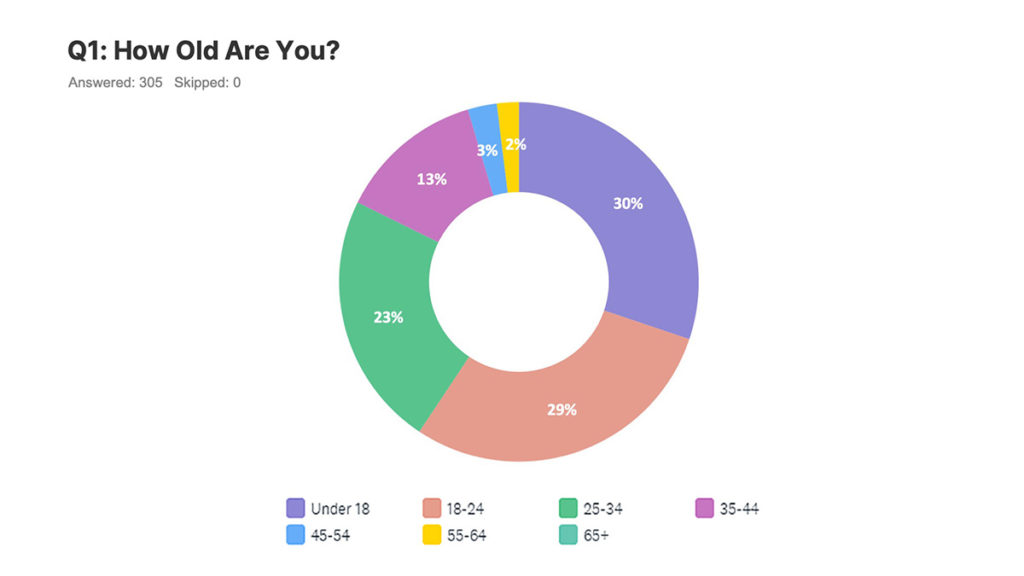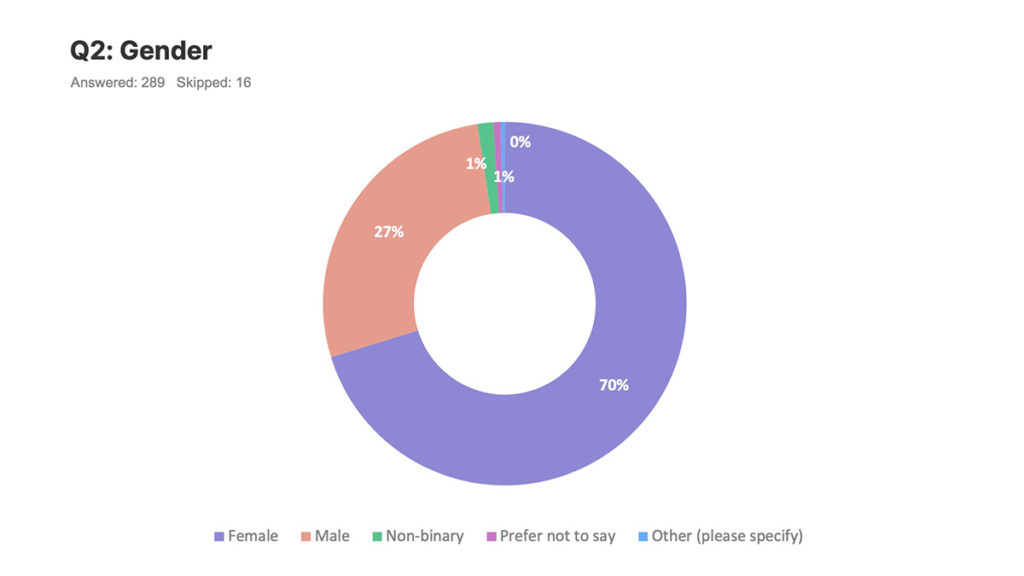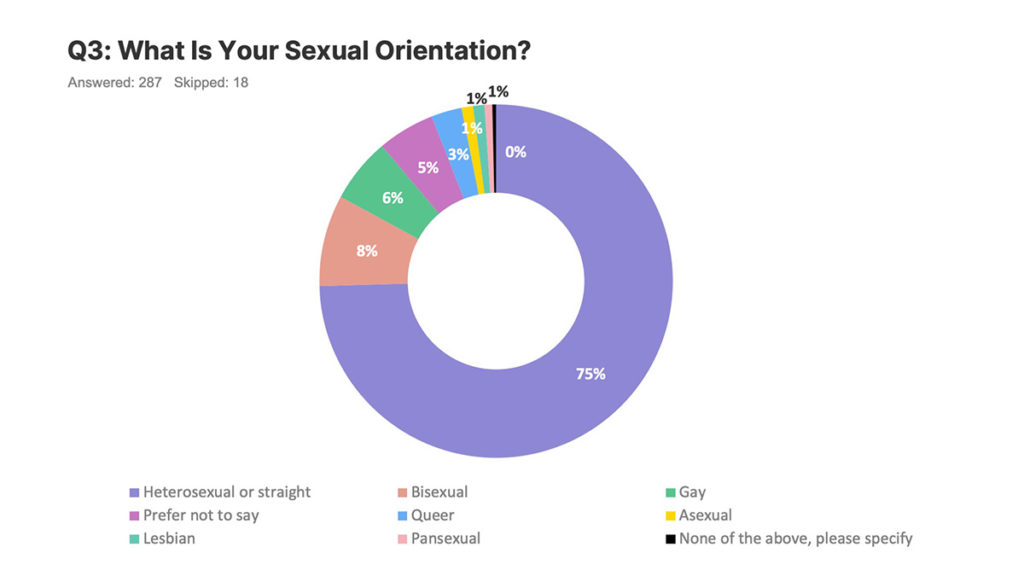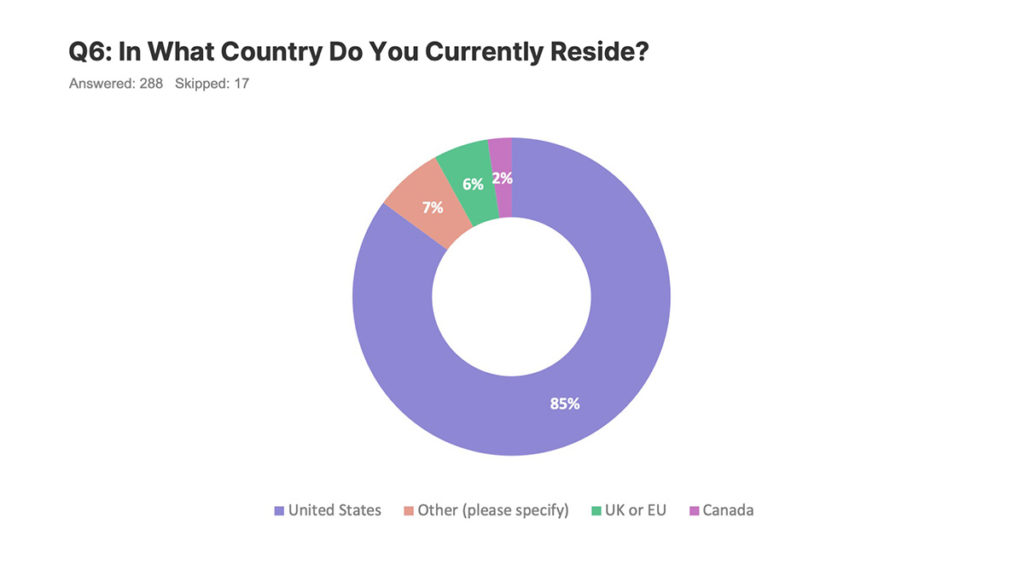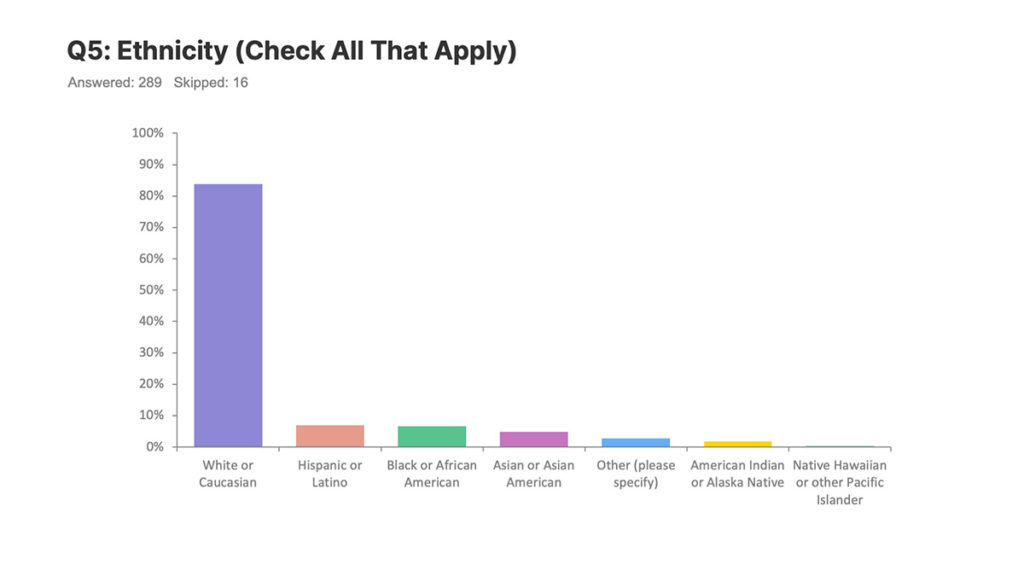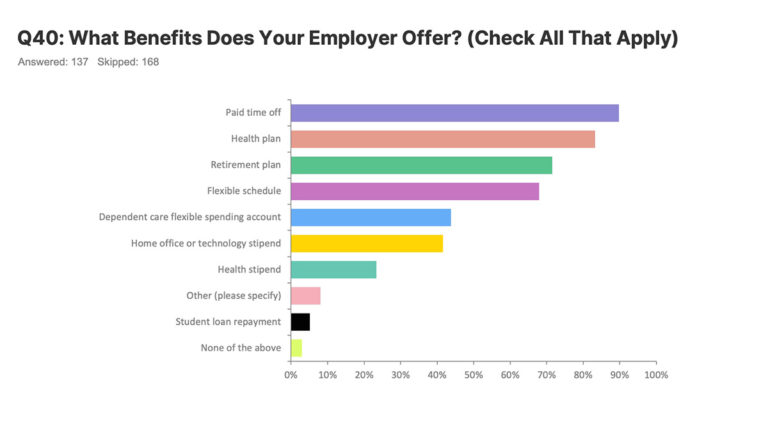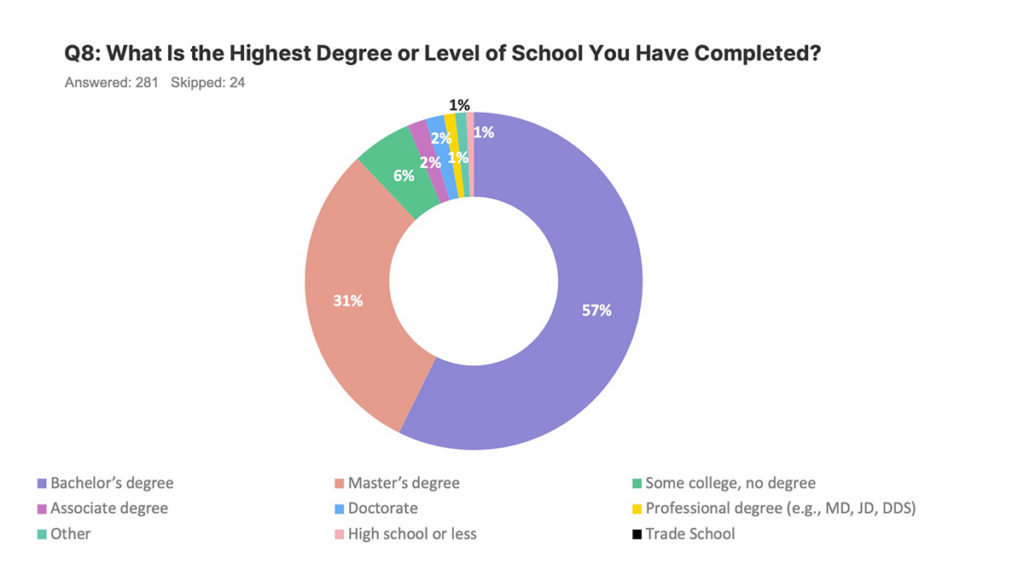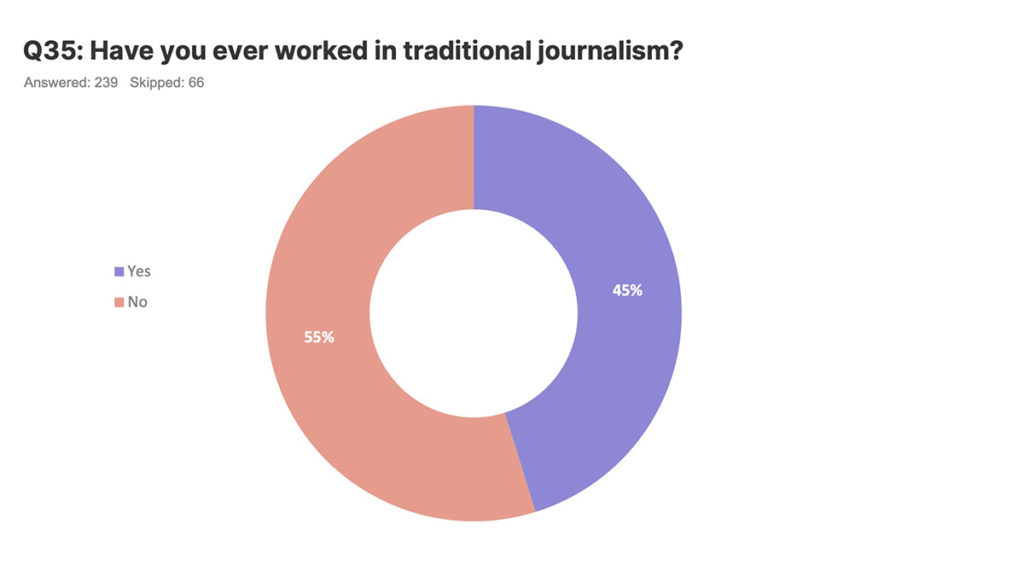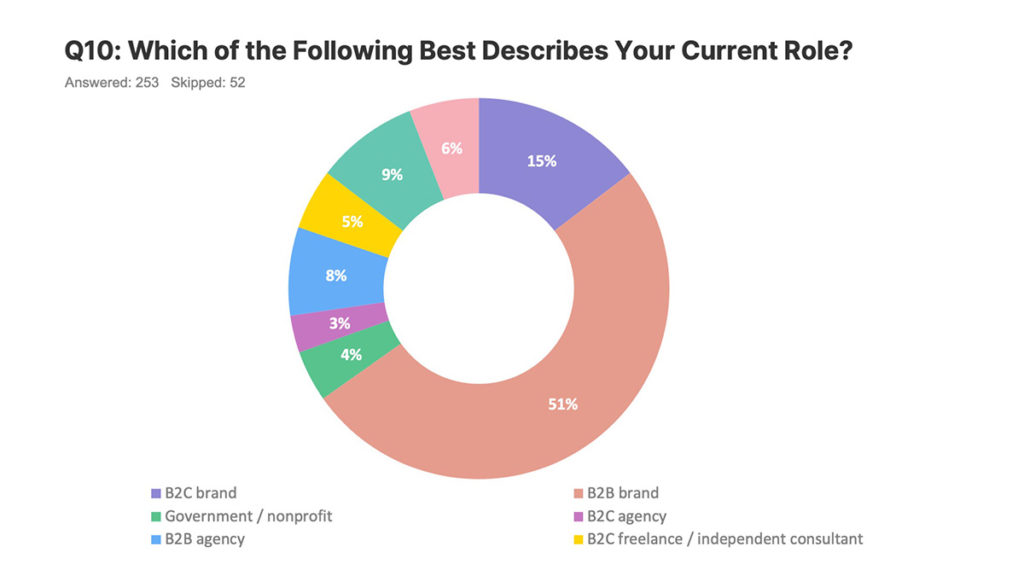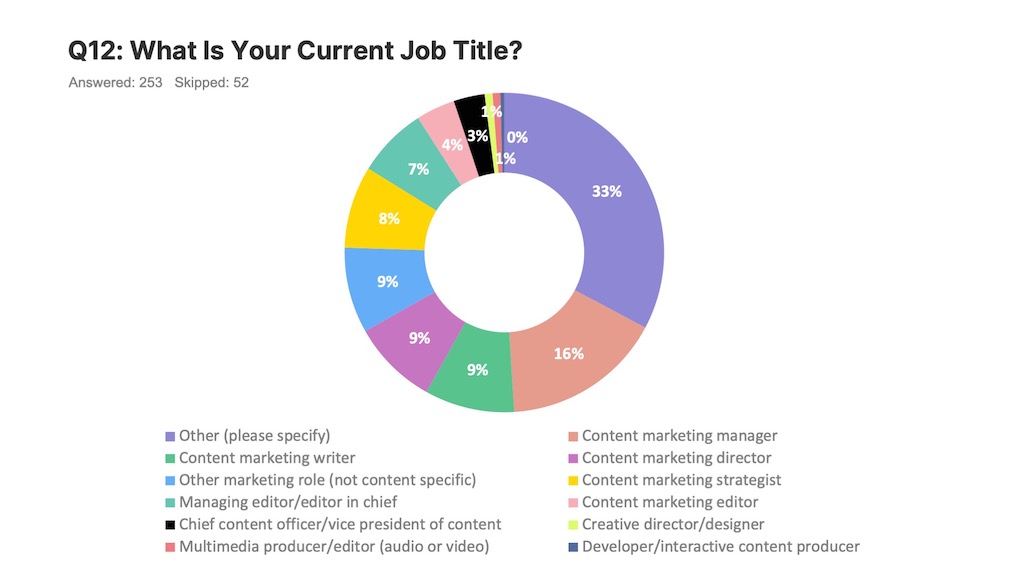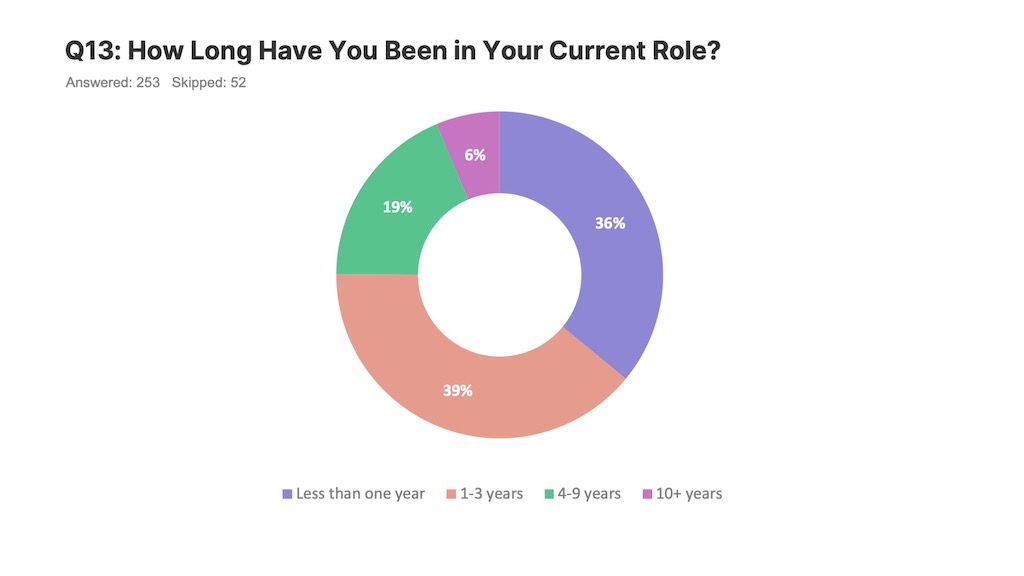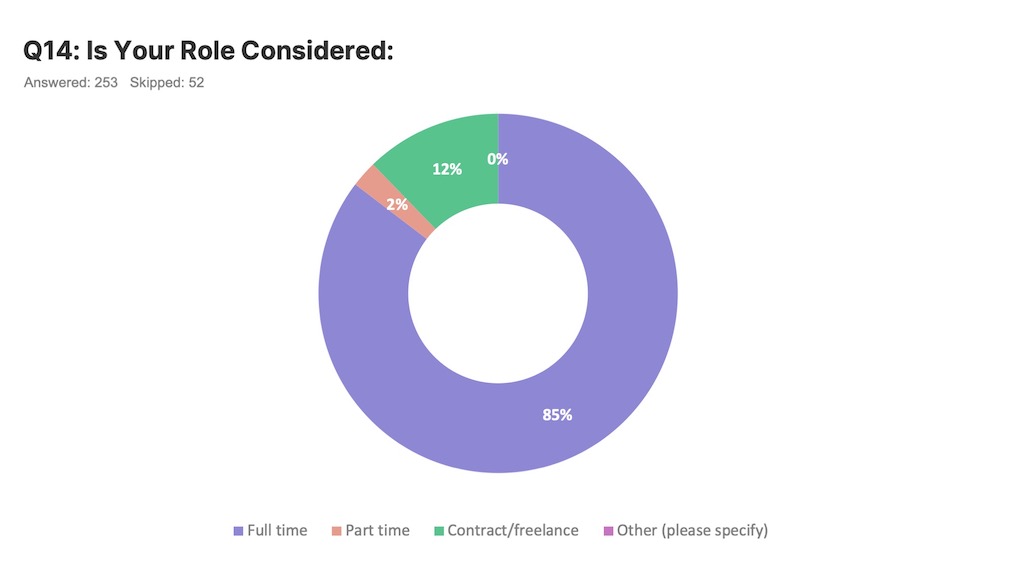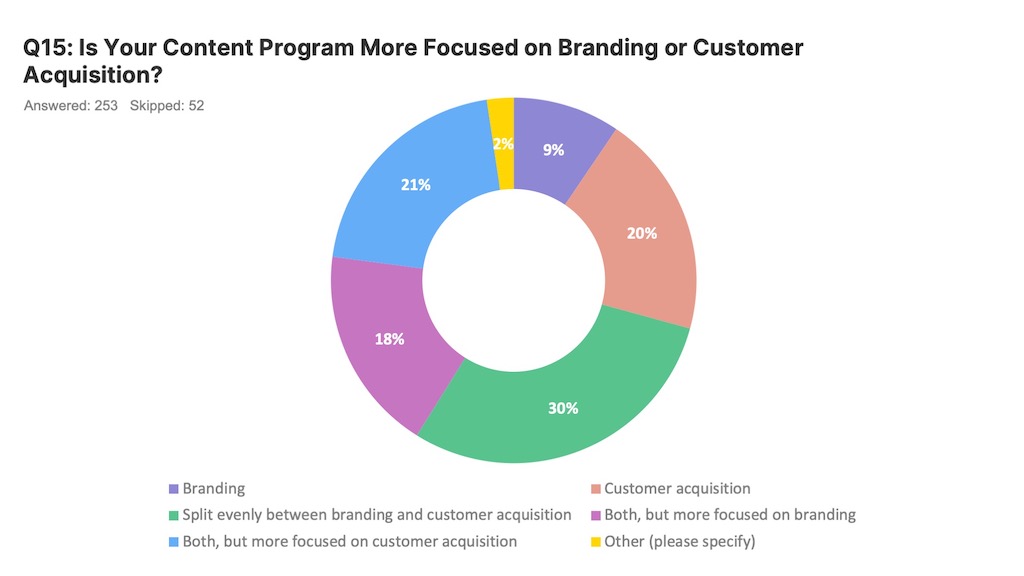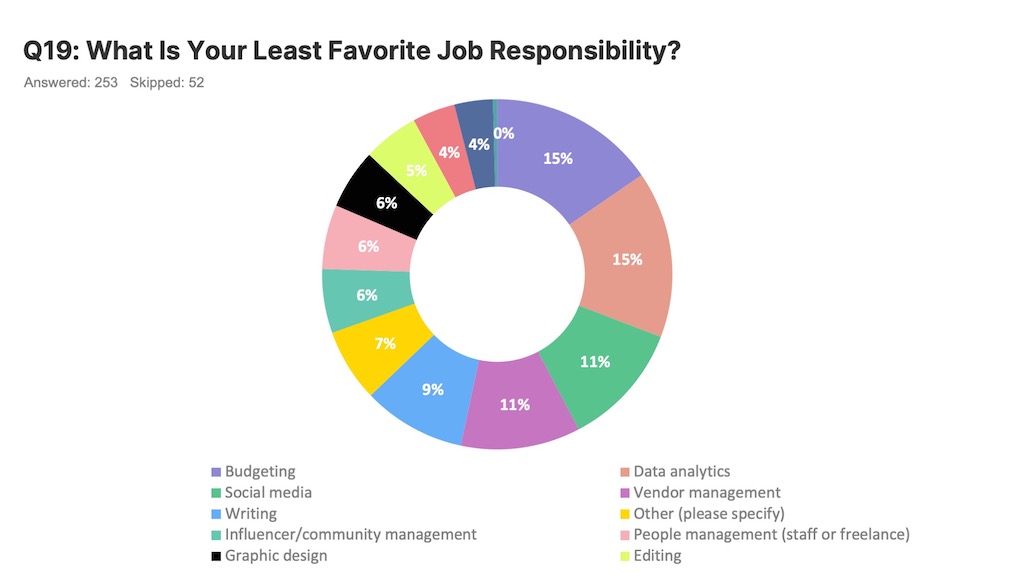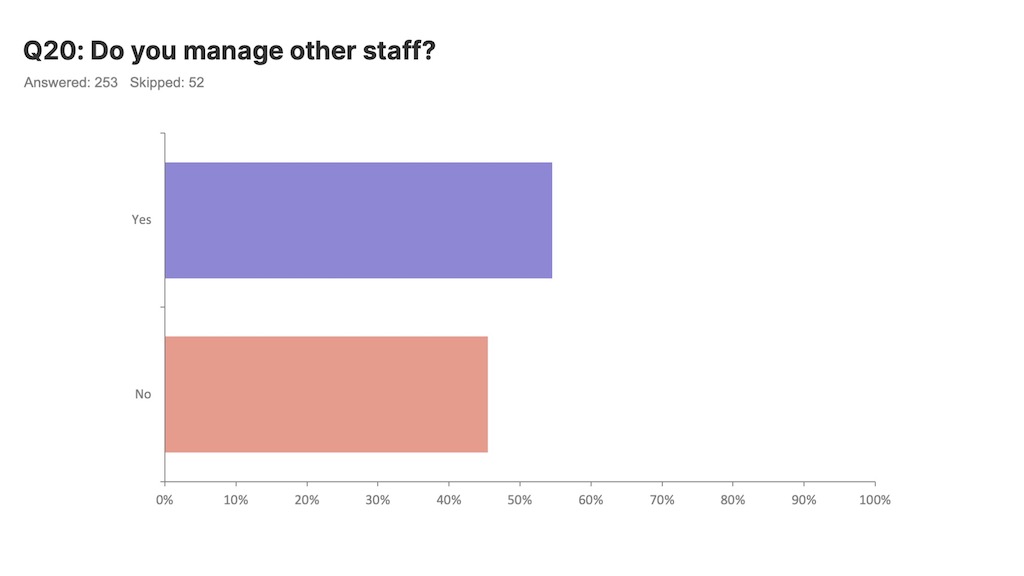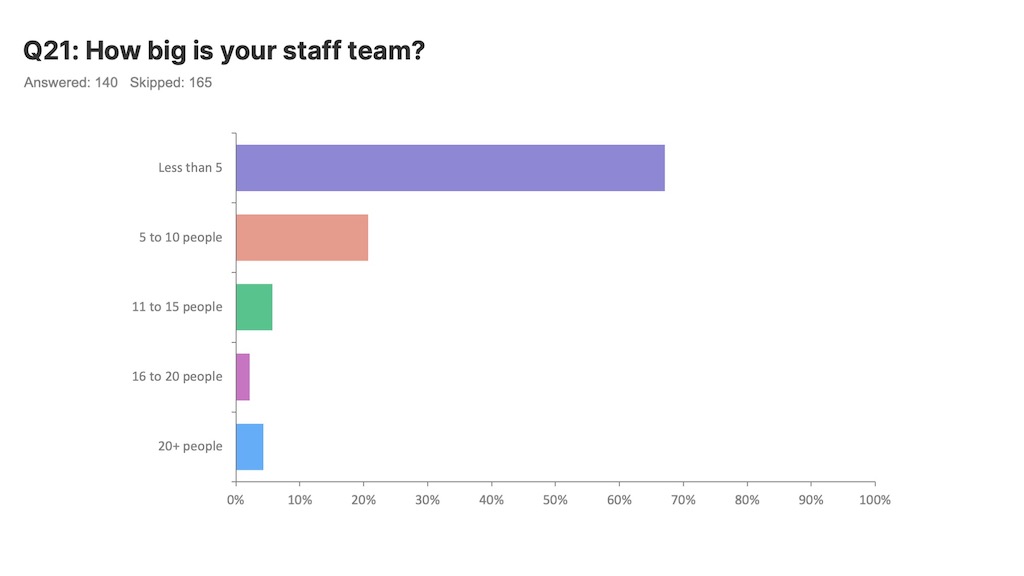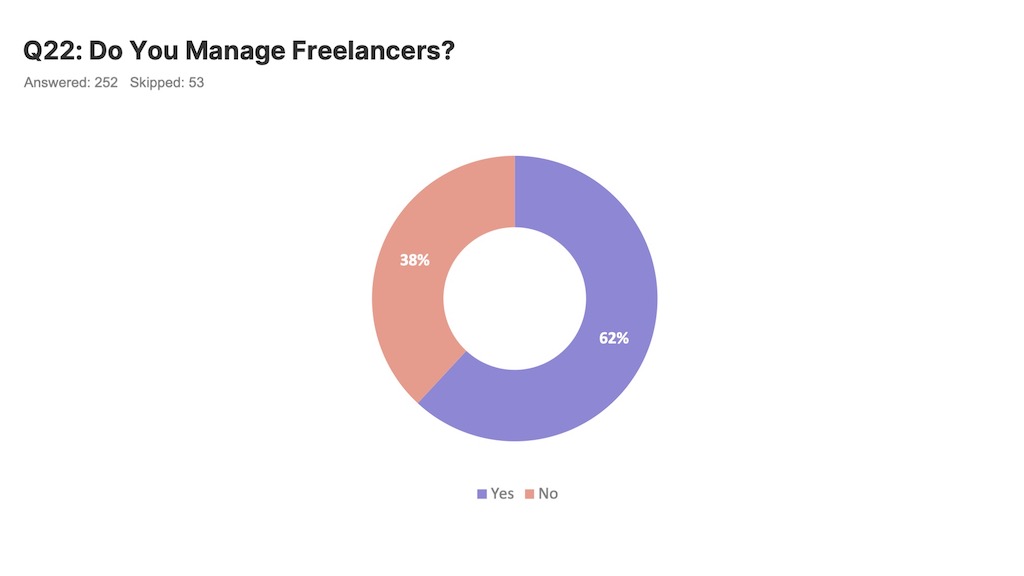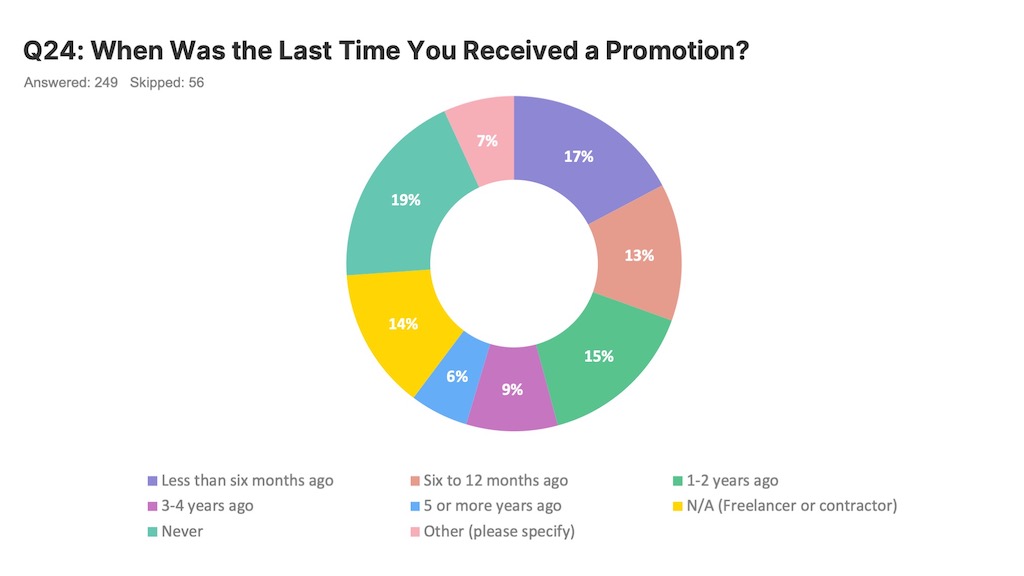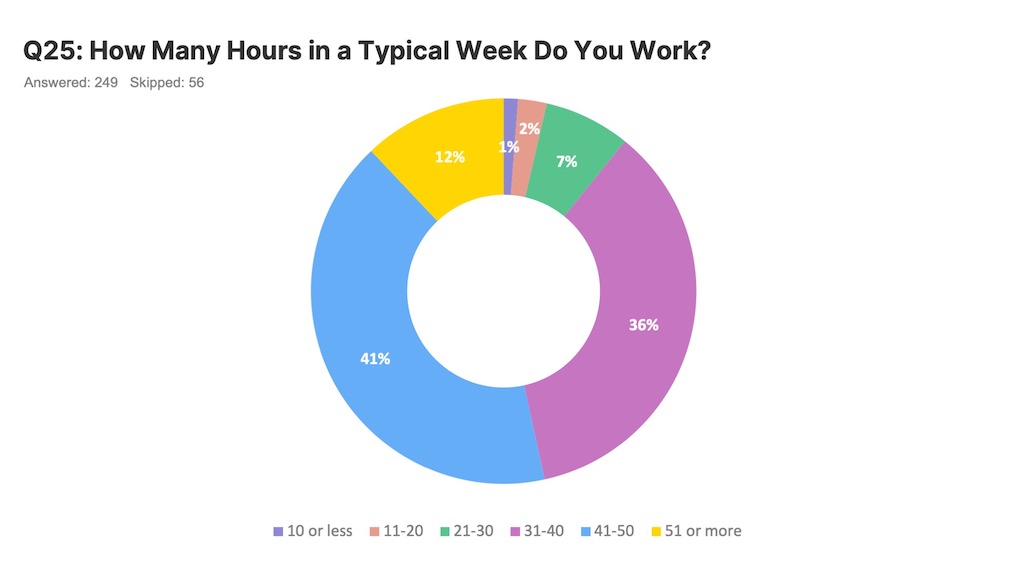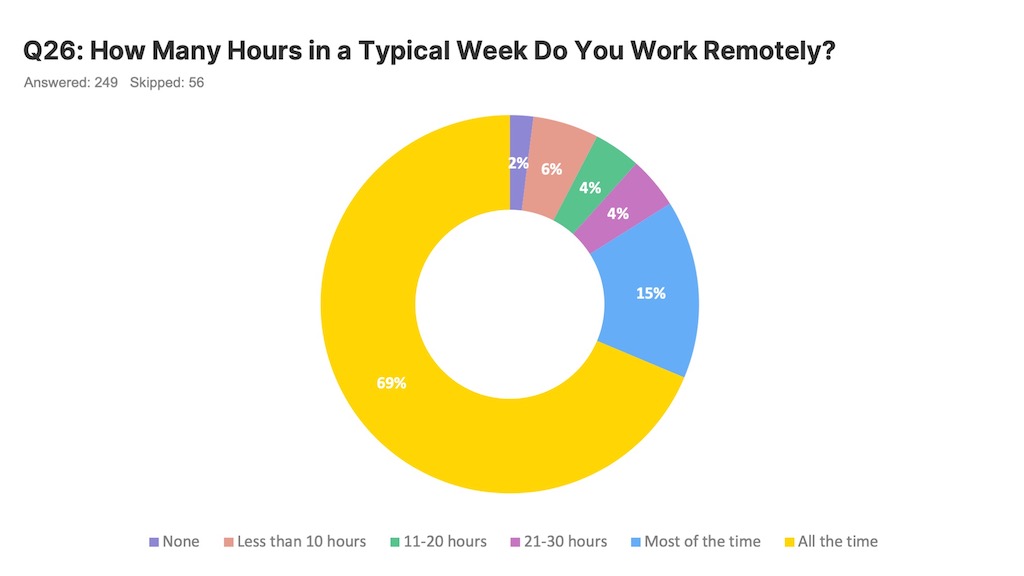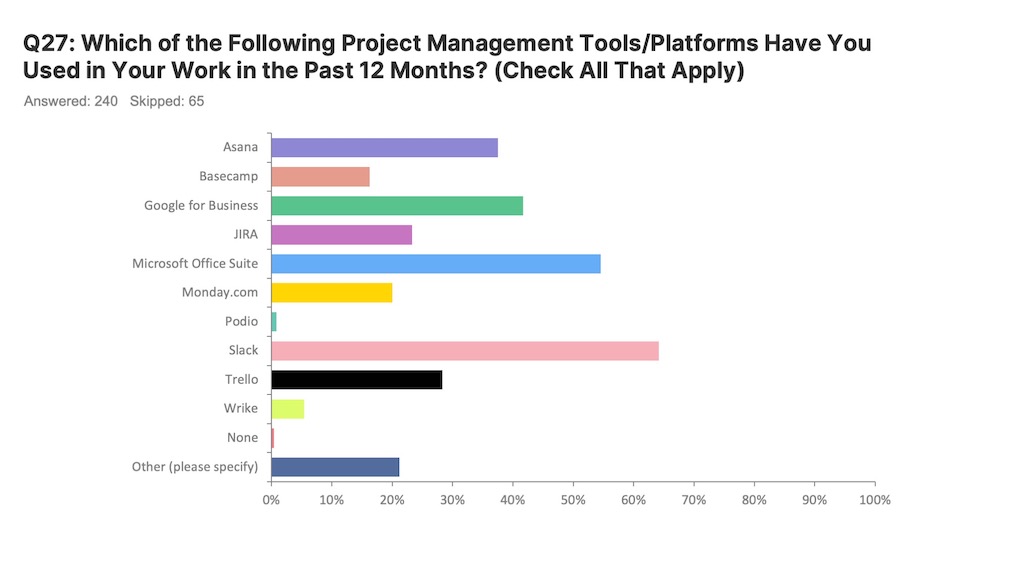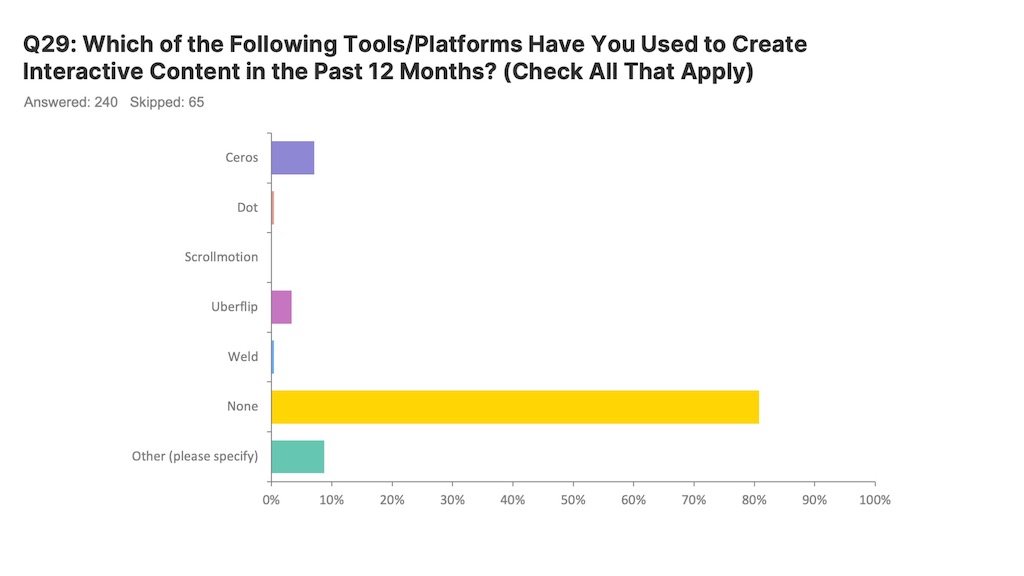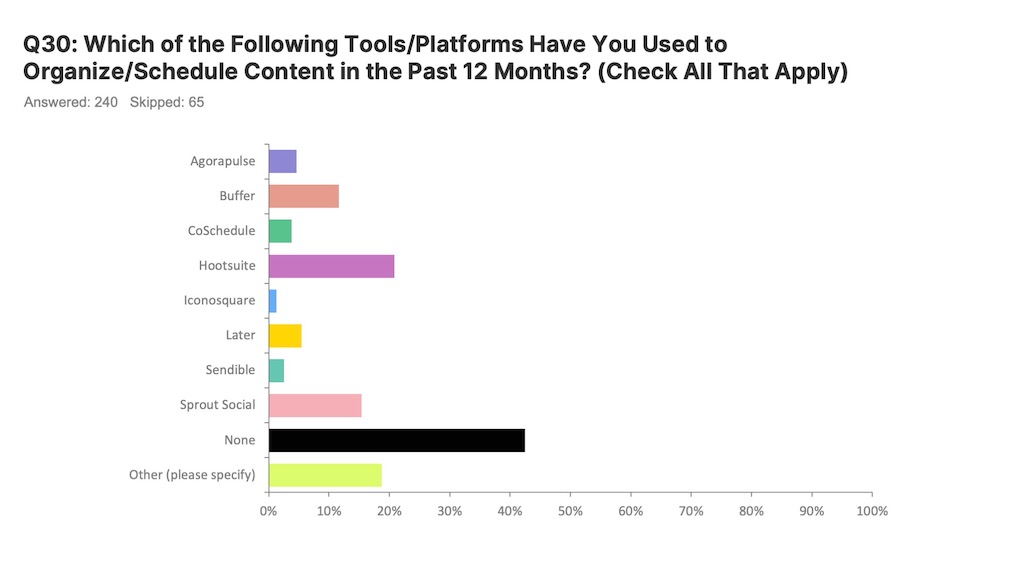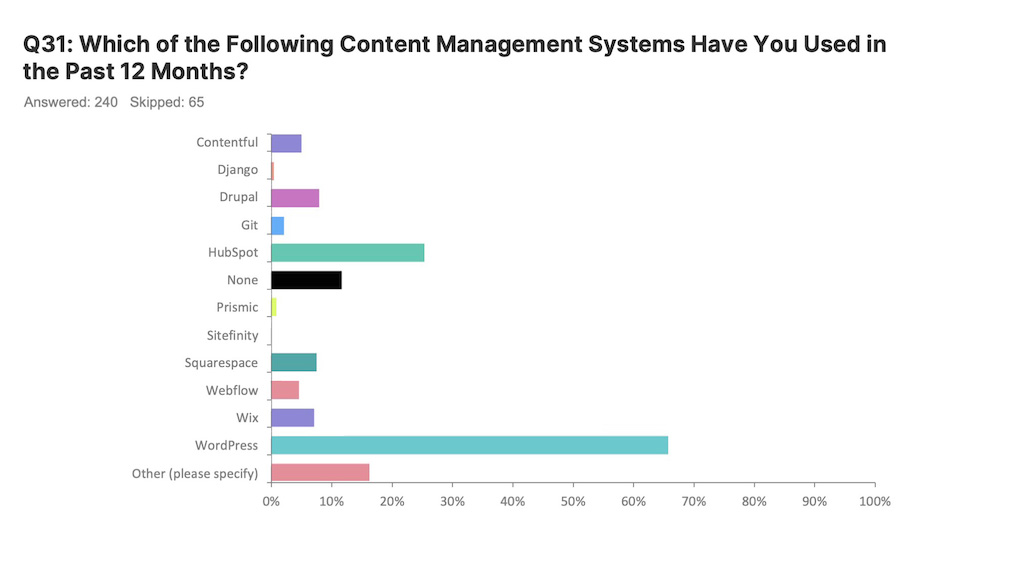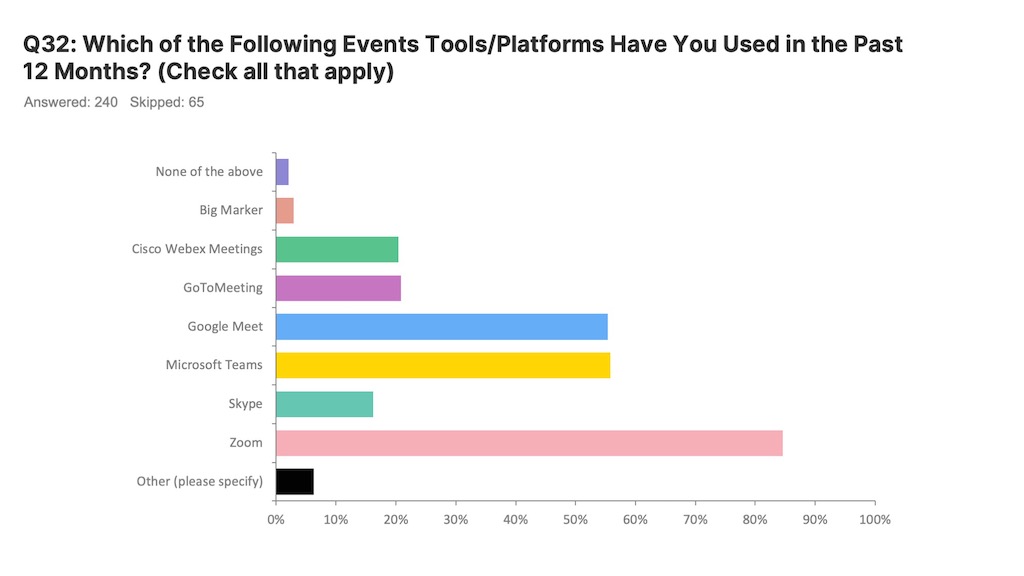Career SurveyReport 2022 Career SurveyReport 2022 Career SurveyReport 2022
how much do content marketers make?
2022 has been a year of disruption, conflict and uncertainty. Brands and consumers alike have had to deal with geopolitics, inflation and fears of recession. And there’s a lot of reason to worry about what’s next for the economy and our world.
So what’s the silver lining for our industry? Brands need content marketing more than ever to reach their target audiences with compelling messaging that doesn’t break the bank.
Now isn’t the time to hide. We need content marketers who are bold, creative, strong communicators and agile leaders. Brands need you to help them cut through the noise and reach audiences who are overwhelmed with information.
In our third annual career survey, we asked you to help us answer this question: How does content marketing pay?
The short answer for 2022 is “not bad.” Almost 50% of you reported making at least $100,000 in base salary.
This year, we again looked at diversity, the rise of hybrid and remote work, and what technologies you’re using. We also looked more closely at content marketers’ day-to-day duties.
Thank you for your participation, especially to those who have completed the survey three years in a row. We look forward to helping you, listening to your stories and building a stronger content marketing community together.
Survey Methodology and Key Findings
Key Findings
B2B and B2C brand marketers were equally likely to make $100,000+ and to be eligible for a bonus.
Content marketers put in long hours, with 41% working 40+ hours per week.
Budgeting and data analysis are among your least favorite duties, though they correlate with higher earnings.
68% have/are working remotely full-time. Only 2% are entirely in-person.
Budgeting and people management are job duties that correlate most with top salaries.
55% have never worked in traditional journalism.
Content strategy and writing are among your favorite job responsibilities
Who took the survey
Survey respondents were overwhelmingly white, cisgender women in the 25-54 age range. Most responses came from the United States. Like last year, our respondent pool reflects a longstanding industry challenge: a lack of diversity.
The content we create is distributed widely to diverse audiences, and we need strategists and creatives to develop content that reflects those audiences. As we noted last year, content marketing leaders should elevate diverse voices because it’s the right thing to do. That’s enough of a reason. Additionally, we know diversity helps brands be more representative of their audiences and make better decisions than homogeneous teams.
Overall Compensation and Benefits
Once again, we asked for salary bands rather than an exact salary number, which improves survey engagement even if it makes the data less precise. Comparing across these bands, we didn’t detect a statistically significant gap in salary along gender or ethnicity lines — but that doesn’t mean it doesn’t exist *within* those bands.
Some factors were less important than a year earlier. B2B and B2C brand marketers in 2022 are equally likely to make $100,000 or more. This represents a change from 2021, when B2C marketers trailed in compensation.
B2B and B2C marketers are equally eligible to earn bonuses in their current roles. More than 90% of marketers got at least some of their bonuses in cash. Meanwhile, 20% received a mix of cash and stock, an increase from last year.
The most common salary band for the most common job titles:
Content marketing manager:
Between $100,000 and $150,000
Content marketing writer:
Between $50,000 and $74,999
Content marketing director:
Between $100,000 and $150,000
Content marketing strategist:
Between $75,000 and $99,999
Managing editor/editor in chief:
Between $50,000 and $74,999
Content marketing editor:
Between $75,000 and $99,999
Chief content officer/
vice president of content:
Over $150,000
Education
More than 90% of content marketers we surveyed have at least a bachelor’s degree, with common undergraduate majors including business, liberal arts and journalism. Interestingly, 55% of you have never worked in traditional journalism.
While college graduates dominate content marketing, it’s worth noting that this field is constantly evolving. Continuous learning and professional development — regardless of educational background — should be a priority. You need to stay current on marketing knowledge, such as the latest in SEO, and the issues and trends affecting your industry.
What Do Content Marketers Do?
In previous surveys, we’ve found little to no consistency among job titles and responsibilities. That might be changing.
This year, almost 50% of you had a title containing the phrase “content marketing.” The industry remains fragmented, however, as 33% of you selected “Other” for your job title.
Job titles can reflect a range of responsibilities, authority and compensation. However, a comparison of “content marketing manager” and “content marketing director” suggests the industry is figuring out job levels.
Content marketing directors were more likely to oversee big budgets (over $600,000), make more money ($150,000 and above) and manage many employees. Over 50% of content marketing managers, by contrast, managed no one.
Content marketers have a wide range of job duties, although (unsurprisingly) the top three responsibilities are content strategy, editing and writing. Your three least favorite responsibilities are budgeting, data analysis and social media. We get it! However, those tasks are also essential to developing a content strategy, even if they don’t seem as directly relevant.
Last year, we found that data analytics correlated with higher salaries, despite its relative unpopularity. This year, we found that budgeting and people management duties correlated most with salaries of $150,000 or more. Content marketers who received a bonus exceeding $20,000 were more likely to have budgeting as a core duty.
Budgeting is also an important content marketing focus because many of you have concerns about your budget. 21% of you don’t have a set budget, while 29% are unsure of your budget.
Content marketing leaders are also people managers, and not just full-timers. Similarly to last year’s survey, 61% of content marketers oversaw at least five to 10 freelancers. Fewer than 2% employed over 100 freelancers.
What Are Content Marketers’ Work Habits?
You won’t find most content marketers in an office nowadays. The pandemic’s lasting influence is evident — 69% of you are fully remote (albeit down from 77% last year).
Only 2% never work remotely.
Overwork is still a problem, however. More than 50% of you averaged at least 41 each week. Interestingly, remote workers are especially likely to work in excess of 40 hours per week.
Job responsibilities can influence how many hours you work. For example, 78% of respondents with budgeting duties averaged more than 40 hours per week.
These findings suggest that we can’t fix burnout and work-life imbalance solely by decamping from the office. We recognize the value of remote and flexible work options, but we also know that we need a cultural and leadership shift in how we view productivity.
Our industry, like many, has to do a better job of defining “flexible schedules.” While 68% of you said your employer offers flexible schedules, what does that really mean? Are you setting your own hours while respecting deadlines and your colleagues’ needs? Is “flexible” more of a perk, like work-from-home Fridays? Or is it a faux benefit, like allowing workers to tend to important responsibilities but forcing them to take unpaid leave?
Content Marketing Technology
Communication and collaboration tech have become more important since the pandemic began. Many respondents cited platform leaders such as Microsoft Office Suite, Slack, Google for Business and Asana as their primary work software.
We also asked respondents about the niche platforms that enable key content marketing tasks. When it comes to email platforms, many of you specified using popular systems such as HubSpot and Mailchimp. But 40% are using other platforms. Similarly, most of you don’t bother with standalone interactive content, with fewer than 20% of you using them.
When organizing and scheduling content, many respondents use scheduling systems like Sprout Social, Hootsuite, Later and Buffer. However, more than 40% of you aren’t using any scheduling platform. There are many reasons why this might be the case, including team and company size and budget constraints.
When it comes to content management platforms, WordPress was cited by nearly 66% of you. And Zoom still dominated video conferencing and events, although the return of live events could put a damper on all virtual events tools.
The Road Ahead
There is still tremendous opportunity as content marketing evolves. We all have a responsibility to establish sustainable career paths, provide educational opportunities and help each other grow as a community.
Content marketers have to improve diversity, equity and inclusion in their content and teams. Managing Editor is committed to highlighting and celebrating our community’s diverse voices.
The future is in our hands. This year, as a shaky economy threatens business success, our insights reveal that we can potentially increase our pay by taking on budgeting and people management duties. At Managing Editor magazine, we want to help you achieve your career goals and make the content marketing community better for everyone.
About Managing Editor
Welcome to content marketing’s alt-weekly.
If you enjoy working in content marketing, but could still do with about 75% less of the corporate bullshit that comes with it, we made Managing Editor for you.
We’re a home for the changemakers, culture creators, leaders, disruptors, innovators and mavericks in brand journalism and content marketing.
Managing Editor is nurtured and loved by the team at Rep Cap, a content marketing agency specializing in helping B2B companies create and execute their thought leadership and brand publishing strategies.
